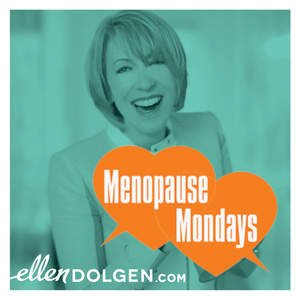 "Not tonight dear. I have a painful vagina." Say what? If you're making excuses to avoid sexual intimacy with your partner due to vaginal pain, you owe it to yourself (and your partner) to treat it.
"Not tonight dear. I have a painful vagina." Say what? If you're making excuses to avoid sexual intimacy with your partner due to vaginal pain, you owe it to yourself (and your partner) to treat it.
"The big O" does not mean "the big Ouch." Recapture the rapture in bed.
Pain during intercourse is called dyspareunia. Say what? If you're experiencing pain during sex, you could be suffering from vaginal atrophy (VA). Vaginal atrophy is a thinning and inflammation of the vaginal wall. VA occurs when estrogen levels drop. Estrogens, produced by the ovaries, maintain the structure and function of the vaginal wall, elasticity of the tissues around the vagina, and production of vaginal fluid.
Unfortunately, like the rest of your menopausal body, your vagina is aging too!
Hot flashes, sleeplessness, memory loss and weight gain get top billing when it comes to menopausal symptoms. But vaginal discomfort is every bit as difficult and critical to deal with as those symptoms. Vaginal symptoms can negatively impact not only on your relationships and sexuality, but can affect your quality of life and self-image.
If you're experiencing these symptoms, you could have VA:
- vaginal dryness
- sex-induced pain or bleeding
- itching
- soreness or irritation
- painful or burning urination
- incontinence (involuntary urination)
- pain when touching the vagina
You're not alone. Vaginal dryness affects as many as 75 percent of postmenopausal women. Between 17 and 45 percent of postmenopausal women say they find sex painful, according to The North American Menopause Society (NAMS).
According to the Women's Health Concern, only 25 percent of these women seek treatment. What's more, according to the International Menopause Society, 70 percent of women say their healthcare providers rarely or never raise the subject with them.
The Closer survey revealed that vaginal discomfort caused 58 percent of the North American women who were surveyed to avoid intimacy and 64 percent to experience a loss of libido.
Pain during sex (or simply the fear of pain during sex) can trigger performance anxiety or arousal problems in some women, according to the NAMS. This also can cause dryness or involuntary -- and painful -- tightening of the vaginal muscles, called vaginismus. It's a Catch-22.
What are your options?
- Pelvic floor therapy. According to Harvard Medical School, this is a relatively new -- yet safe and effective -- technique. A physical therapist uses massage and gentle pressure to relax and stretch tightened tissues in the pelvic area. You also learn exercises to help strengthen your pelvic floor muscles, which may have been weakened by aging, childbirth or hormonal changes.
- Personal lubricant or moisturizer. However, your vagina may need more than a lube job. Non-hormonal vaginal lubricants can help decrease friction and discomfort during intercourse. Be sure that they are water-based and designed for vaginal use. Petroleum-based lubricants can harbor bacteria in the vagina and lead to infection, as well damage latex condoms.
Vaginal moisturizers (similar to moisturizing your face (most women find these helpful to use every day) can help relieve dryness and rebalance the acidity of the vagina. Both lubricants and moisturizers provide temporary relief of symptoms but do not treat the underlying condition of vaginal atrophy.
I can't believe it's been about a decade since my vagina first committed mutiny and my libido went AWOL. I've since vanquished my vagina problems and located my libido. You can, too. Get your symptoms treated, and you can put the va-va-voom back in your vagina.
Suffering in silence is OUT! Reaching out is IN!
For more by Ellen Dolgen, click here.
For more on women's health, click here.
Ellen Dolgen is an outspoken women's health and wellness advocate, menopause awareness expert, author, and speaker.
After struggling with her own severe menopause symptoms and doing years of research, Ellen resolved to share what she learned from experts and her own trial and error. Her goal was to replace the confusion, embarrassment, and symptoms millions of women go through-before, during, and after menopause-with the medically sound solutions she discovered. Her passion to become a "sister" and confidant to all women fueled Ellen's first book, Shmirshky: the pursuit of hormone happiness. As a result of the overwhelming response from her burgeoning audiences and followers' requests for empowering information they could trust, Ellen's weekly blog, Menopause MondaysTM, was born.
Menopause MondaysTM is a platform from which Ellen reaches the true needs of her readers through varied and substantive discussions of menopause, women's health, and the modern woman's life today as a menopausal woman. Her weekly newsletter provides readers the most current menopause news and research. With her updates, women gain access and the knowledge needed to take charge of their health and happiness. Her motto is: Suffering in silence is OUT! Reaching out is IN!
In addition to Ellen's ever-growing social media presence, EllenDolgen.com has fast become "the place" on the web for informative and entertaining women's menopause and wellness engagement. Ellen is #1 on Dr. Oz Sharecare.com Top 10 Social HealthMakers on Menopause. In 2012, 2013 and 2014, EllenDolgen.com / Menopause Mondays was named first on the list of the "Best Menopause Blogs" by Healthline. Ellen is also a regular contributor to over a dozen leading women's health blogs.
Like Ellen Dolgen on Facebook, follow her on Twitter and Pinterest, connect with her on LinkedIn, Google+, and Klout, watch her videos on YouTube, and subscribe to her newsletter.
Earlier on Huff/Post50:
